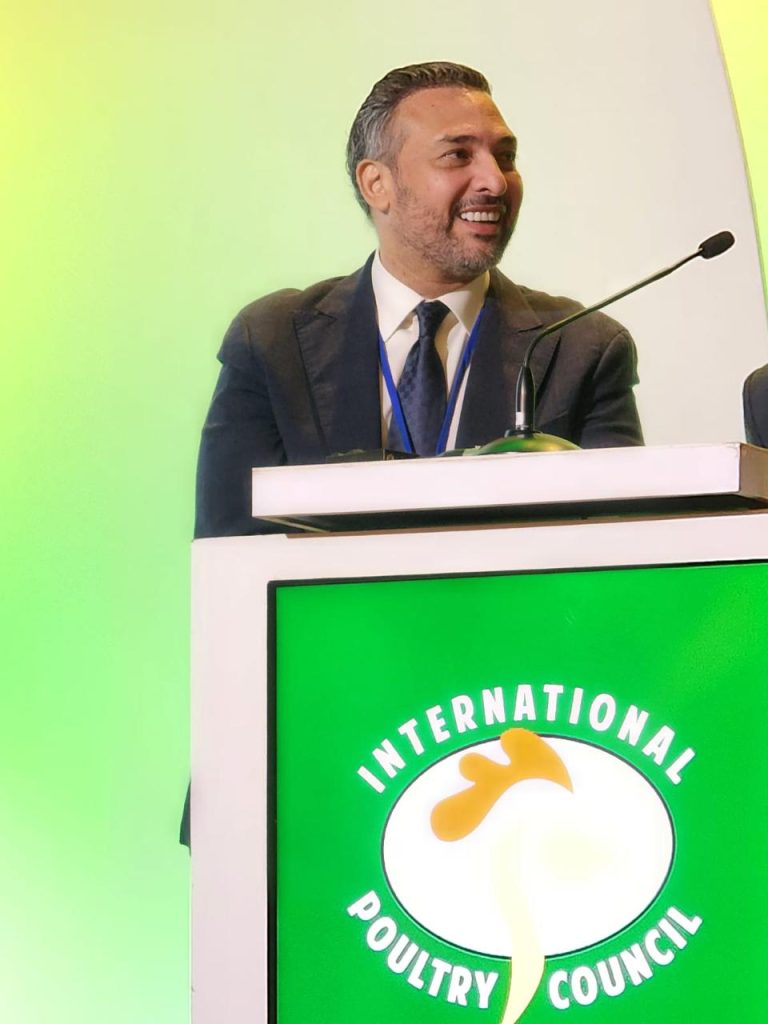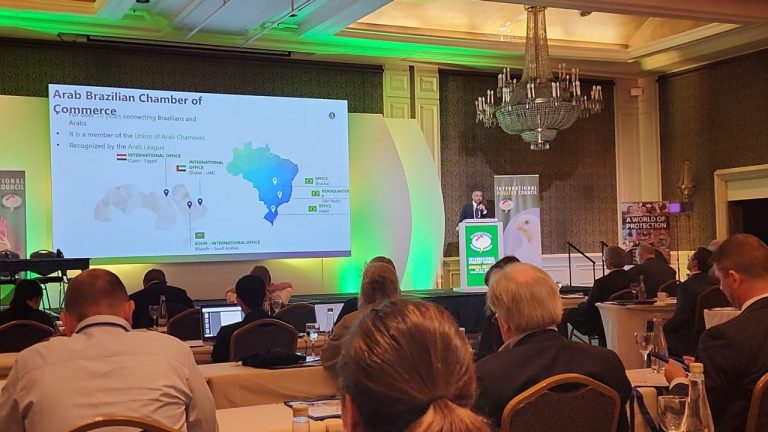São Paulo – Expanding exports to halal consumers and the opportunities that the Islamic and Arab markets provide were the key topics of the lecture gave by Arab-Brazilian Chamber of Commerce (ABCC) CEO & secretary-general Tamer Mansour on Monday (6) during the International Poultry Council (IPC)’s annual meeting. The event is being held until next Wednesday (8) in Buenos Aires, Argentina.

“We participated in the event by the invitation of the IPC to discuss the investment and opportunity potential of the halal and the Arab market and the challenges it presents,” said Mansour. “We decided it’s necessary to work closely with producers to reach the best results in terms of exports and investments,” he said.
According to the executive, representatives of poultry firms attending the event both from Brazil and other countries showed a great interest in the halal market and wanted to learn more about it. As a result, said Mansour, the ABCC and the IPC could work together to foment exports and investments.
Mansour explained that the Muslim population grows at a rate that is nearly three times higher than the world’s and is expected to reach 2.8 billion people, according to the U.N Population Fund (UNFPA) and the International Monetary Fund (IMF). According to the data he presented, the nominal gross domestic product of Muslim-majority countries reaches USD 7 trillion, while for comparison the GDP of Mercosur – bloc consisting of Brazil, Argentina, Uruguay and Paraguay – is USD 3 trillion.
Halal consumer is in the Arab world, Africa, Asia and Europe
In addition to the population size and economic potential, Mansour presented key markets for halal goods, including Arab countries like the United Arab Emirates, Saudi Arabia, and Egypt, besides South Africa, Indonesia, Malaysia, France, and Germany. Opportunities include the export of high value-added goods, re-export of goods from Islamic logistic hubs, food diversification amidst a large number of countries, and sales to non-Muslim consumers who see halal as a synonym for quality and cleanliness.
The ABCC, alongside the Brazilian Trade and Investment Promotion Agency (ApexBrasil), spearheads the Halal do Brazil project, which targets the halal market and was established to promote made-in-Brazil food and beverages abroad. Despite not being a Muslim-majority country itself, Brazil is now the world’s leading exporter of halal meats.
Here’s more on this:
As Ramadan draws near, Arabs buy more poultry from Brazil
The IPC event discussed a series of topics involving the industry. Biosecurity and genetics were topics discussed in the technical forum on animal health and welfare. Food security, a subject close to Arabs, was the topic of Monday’s talks.
Tuesday will see the holding of presentations focused on innovation. On Wednesday, panels will address topics concerning animal welfare and the Latin American potential in the global production of poultry and poultry products.
A lecture on innovation scheduled for Tuesday will be led by the IPC chairman Ricardo Santin, who is also the president of Brazilian industry lobby ABPA. He was chosen to lead the institution in December 2023.
ABPA’s most recent report on poultry exports made public in April shows that Brazil exported USD 751.3 million worth of chicken meat and chicken meat products in March, down 23.4% from the revenue grossed in March 2023. ABPA said the March results are in line with the industry’s historical average, and that March last year posted atypical results. The UAE, China, and Saudi Arabia are the leading buyers of chicken meat from Brazil.
Find out more about the IPC.
Translated by Guilherme Miranda




